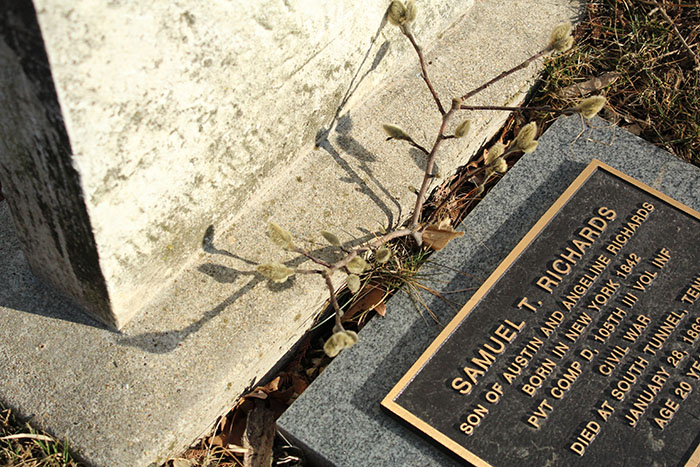Persistence
I’m sitting here, alone at my grandfather’s funeral in a room off the lobby. There’s a lot running through my mind, least of all is grief. I feel like a monster for saying this, but seeing his body arranged in the casket failed to bring me any emotion. In all honesty, I had to keep myself from laughing at the way his lips looked stretched out, like two uncooked hot dogs laid where his lips should be.
Maybe I’d feel differently if he hadn’t been sick for so many years. I was warned it wouldn’t look like him. My grandpa had ALS, and the erosion of his physical form turned him from a mountain of a man into the mere suggestion of a hill on otherwise flat ground.
Most of the pictures arranged against the walls were from at least five years back. They showed a man nearly unrecognizable to me. But the body in the coffin is neither the person from before his sickness nor the person who died on Friday evening in a nursing home —it felt like this unnatural amalgamation of the two.
Stan Szpytek was a person of extreme character. But tragedy befalls heroes, because life is not bound by a narrative arc. Life is horrible and unfair and indiscriminate and unfathomably beautiful. Beautiful because we persist despite, dandelions in sidewalk cracks.
It started slowly. The first thing was his voice. The rest of his body followed after that. It was a slow and unwavering march. He aged decades in a few years.
As his body changed, so too did the shape our interactions took. For a while, he could talk although it was strained, but the sound of his voice has since faded from my memory. After that, he could write in response, but soon enough, pencils came clattering from his shaking hands. Finally, all communication became a simple thumbs-up. I never knew the variety of meanings a simple gesture can have until it was all that he had.
But his sickness didn’t stop us from having a relationship. Just because he couldn’t talk never meant he wasn’t listening, didn’t care. We persisted.
Even the thumbs-up went away near the end. Illness took nearly everything from Gramps. But he persisted despite.
The last thing I ever told him was a joke. I knew that would be the final time I would see him alive. “Hey Gramps,” I said as I hugged him, “at least you still have more hair than my dad.” ALS could strip him from bodily autonomy, but it couldn’t take away his sense of humor and wonder. He laughed, and I left.
That’s the grandfather I knew. The one who would laugh at jokes that would get a disapproving look from my grandma, the one who found joy in so many things. And that’s the Gramps that persisted until he expired.
Form and essence are inseparable; that is to say, we can’t disengage who we are from what we are. However, it is imperative to not allow the physical manifestation of a person to become a representation of their personhood. For a time, I was guilty of viewing him through that lense.
When his illness started getting worse, I hated visiting him. I was having trouble seeing him as the man I grew up around. In my head, he became this unnerving, saliva-oozing creature that had taken my real grandfather away. I couldn’t stand to look at him.
And in some minor way, I was right: his body wasn’t that of my childhood grandfather. It was frail, powerless and broken. And that’s beautiful. Beautiful not because the personal tragedies endured or the pain inflicted, but beautiful because his body was only the medium through which he delivered himself, nothing more; that was still Gramps.
So when I saw his body at the funeral, I didn’t feel much. Because his body wasn’t what made my grandfather great, and it wasn’t what made me love him.
Form is only one part of the equation; his essence persisted no matter the shape his body took. We are dandelions in a sidewalk crack, growing despite the foot traffic treading on our stems, reaching toward the sky, growing despite conditions so bad, no one would blame us for giving up.


